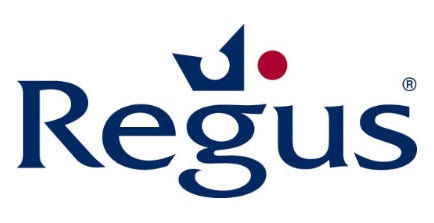Managing Director of B3C, Jonathan Price, offers key observations on Regus’s latest headline news and what it means for other business centre operators.
Remember when Regus acquired Evans Easyspace?
OT first reported on the acquisition back in February 2014, and it seems the business centre behemoth has wasted no time in putting its plans for the UK operator into action. Which, as we now know, means the sale of Evans’ entire portfolio.
News broke earlier this week that Regus has agreed to sell the Evans Easyspace portfolio to investor Bridges Ventures for £84m. Property Week maintains that Regus has “substantially improved occupancy and net income” since it acquired Evans Easyspace last year, and now intends to continue to run the portfolio under a management contract with Bridges.
The news comes amid a busy week for Regus, in which the firm also posted its financial results – including a 7% rise in full-year pretax profit.
On Tuesday, Regus released its results for the year ended 31st December 2014, reporting a pretax profit of £87.1 million, up from £81.5 million the previous year, on a revenue of £1.68 billion and £1.53 billion, respectively.
“Healthy rise” in operating profits
“Regus published its 2014 results on Tuesday to general, though not universal, approval from analysts,” says Jonathan Price, Managing Director of B3C. “For portfolio investors, the indications were good with a healthy rise in operating profits and most important in the proposed dividend.”
According to Jonathan: “This progress was achieved despite, rather than because of, a rapid expansion of the portfolio, which now amounts to 2,269 centres in 850 cities in 104 countries, a rise of 452 centres from 2013. Nor does it seem that the pace of expansion will slow down any time soon, with ‘visibility’ on 400 new locations for 2015.”
Indeed, reports suggest that that Regus expects to invest £120 million into further expansion of its portfolio this year, leading to another 400 locations.
Analysing the results further, Jonathan adds: “One major change from previous years is the lack of emphasis on workstation based metrics.
“Gone are the REVPOW and REVPAW and instead we are invited to consider the ‘Post tax cash return’ which is a new return on investment metric, whose purpose seems to be to get the reader to focus on the returns from mature (3 year old) centres.
“Using this measure, Regus’ return on capital is 20%+ p.a. which we are assured is more than the cost of capital.”
“Friendly institutions”
As for the sale of Evans Easyspace, Jonathan comments that it would have helped the return on capital “in a small way”.
So was this Regus’s intention all along?
“One imagines that Regus bought the centres originally with the intention of selling off the properties to a real estate investor and keeping the operations,” he added. “Regus has always sought friendly institutions to buy the real estate which it could then operate from, and it seems they have found at least one to do so.”
With a further 400 locations on the cards, exactly where will these new centres be located?
It would not have escaped the attention of flexible workspace operators, particularly those based in Greater London and the Home Counties, that Regus is planning to push outside of Central London.
Reports suggest that Regus is planning to launch around 30 new locations in outer London, possibly including Barnet, Bromley, Croydon and Wimbledon, citing soaring rents in the capital that’s pushing small firms to the city fringes.
But according to Jonathan, that’s no bad thing. “Many suburbs, both inner and outer suburbs have been starved of flexible space. The move to open offices in outer London is long overdue.”
So what’s next for Regus’s ever-expanding endeavours?
“It would be churlish not to recognise that these are good results from Regus,” added Jonathan. “Given the planned expansion for 2015, the company will continue to offer an exit route to operators inclined to sell.
“One can only wonder how profitable Regus will be when it finally stops expanding.”
Jonathan Price is Managing Director of B3C, a leading fund management consultancy, specialising in investment in business centres, managed office space and flexible workspace. More information can be found on: www.b3c.biz



 Dr. Gleb Tsipursky – The Office Whisperer
Dr. Gleb Tsipursky – The Office Whisperer Nirit Cohen – WorkFutures
Nirit Cohen – WorkFutures Angela Howard – Culture Expert
Angela Howard – Culture Expert Drew Jones – Design & Innovation
Drew Jones – Design & Innovation Jonathan Price – CRE & Flex Expert
Jonathan Price – CRE & Flex Expert















